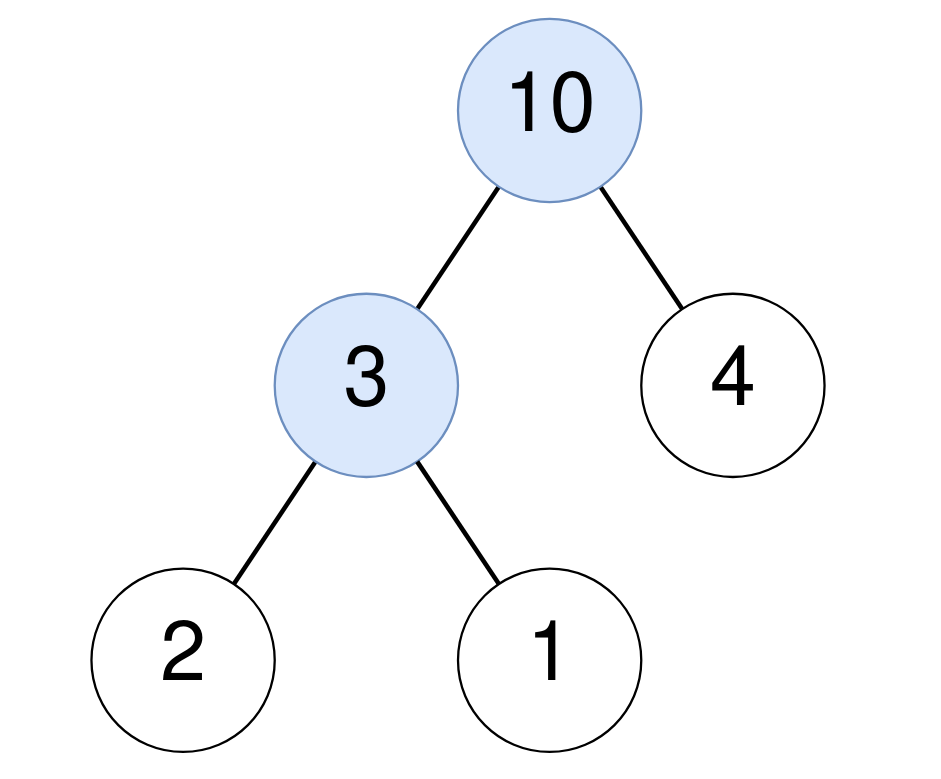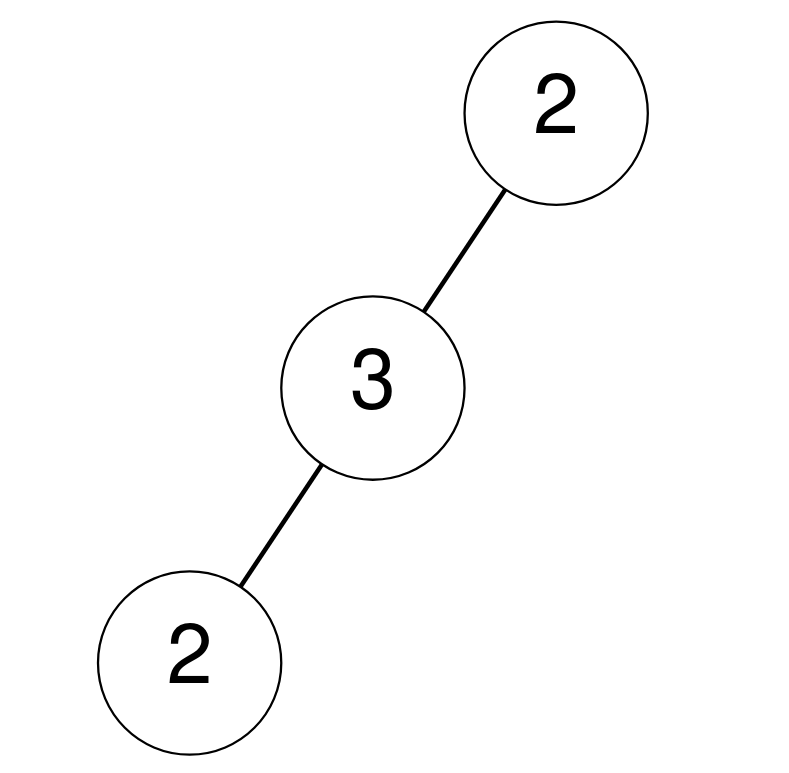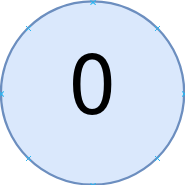Given the root of a binary tree, return the number of nodes where the value of the node is equal to the sum of the values of its descendants.
A descendant of a node x is any node that is on the path from node x to some leaf node. The sum is considered to be 0 if the node has no descendants.
Example 1:

Input: root = [10,3,4,2,1] Output: 2 Explanation: For the node with value 10: The sum of its descendants is 3+4+2+1 = 10. For the node with value 3: The sum of its descendants is 2+1 = 3.
Example 2:

Input: root = [2,3,null,2,null] Output: 0 Explanation: No node has a value that is equal to the sum of its descendants.
Example 3:

Input: root = [0] Output: 1 For the node with value 0: The sum of its descendants is 0 since it has no descendants.
Constraints:
[1, 105].0 <= Node.val <= 105找与子树节点值相等的节点。
题意是给一棵二叉树,请返回有多少个节点其节点值 = 由这个节点所有孩子节点值的和。
思路是后序遍历,类似1120题。因为要计算孩子节点的值,所以必然是后序遍历。对于当前节点来说,我们通过后序遍历计算了左孩子节点值 + 右孩子节点值,如果左孩子节点值 + 右孩子节点值 = 当前的节点值,那么我们就找到了一个符合题意的节点。对于当前节点,往其父节点返回的是以当前节点为父节点的子树的节点值的和。
时间O(n)
空间O(n)
Java实现
1 /** 2 * Definition for a binary tree node. 3 * public class TreeNode { 4 * int val; 5 * TreeNode left; 6 * TreeNode right; 7 * TreeNode() {} 8 * TreeNode(int val) { this.val = val; } 9 * TreeNode(int val, TreeNode left, TreeNode right) { 10 * this.val = val; 11 * this.left = left; 12 * this.right = right; 13 * } 14 * } 15 */ 16 class Solution { 17 int res = 0; 18 19 public int equalToDescendants(TreeNode root) { 20 // corner case 21 if (root == null) { 22 return res; 23 } 24 helper(root); 25 return res; 26 } 27 28 private int helper(TreeNode root) { 29 if (root == null) { 30 return 0; 31 } 32 int left = helper(root.left); 33 int right = helper(root.right); 34 int sum = left + right; 35 if (sum == root.val) { 36 res++; 37 } 38 return sum + root.val; 39 } 40 }
相关题目
1973. Count Nodes Equal to Sum of Descendants
[LeetCode] 1973. Count Nodes Equal to Sum of Descendants
原文:https://www.cnblogs.com/cnoodle/p/15249586.html